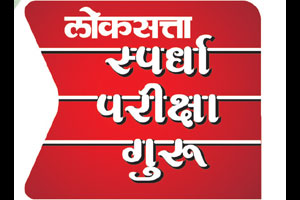पुढील उतारा काळजीपूर्वक वाचा आणि त्याचा मथितार्थ ध्यानात घेऊन परिच्छेदावरील प्रश्नांची उत्तरे शोधा़ प्रश्नाखाली दिलेल्या चार पर्यायांपैकी एका उत्तराला अधोरेखित करा़ सरावासाठी दिलेल्या उताऱ्याखालील प्रश्नांची उत्तरे रविवारच्या अंकात दिली जातील़
उतारा ३ –
Against this background of irresponsiblity and apathy, environmental activists have tended to seek help from the judiciary. The nineties have seen an unprecedented wave of ‘public interest litigations’ on enviornmental matters. in some cases (e.g. relating to pollution in Delhi, judgements favourable to the enviornmental cause have been obtained. ‘Judicial activism’, however, has important limitations as a means of enviormental protection.
First, court proceedings are expensive and often drag on four years. The speed of reaction can be spectacularly out of line with the urgency of the problems to e dealt with.
Second, public interest litigations typically arise in response to a crisi. Asound enviornmental policy, in contrast, needs forward-looking policies and foresight, and even pro- active intervention before an emergency occurs rather than sequential crisis management, which is often ineffective and inefficient.
Third judges are not always adequately prepared to handle the highly technical matters arising in enviornment-related cases. Also, many of the important means of halting enviornmental plunder, such as variations in taxes and subsidies ( including the possible introduction of ‘green taxes’ are difficult to explore within the framework of court proceedings.
Fourth, courts tend to deliver sweeping judgements, based on specific petitions, with relatively little scope for exploring alternatives or negotiating agreements. The uncompromising 1996 ban on aquaculture, for instance, caused havoc among shrimp farmers, leading to a series of attempts and counter- attempts to reverse the court’s order. Similar countroversies have followed the more recent Supreme Court judgement on vehicular standards in Delhi (including the compulsory use of ‘compressed natural gas’ by city buses). Finally, while the judicial process is an integral part of India’s democratic framework, individual proceedings are often far from democratic. The standard procedures of litigation can be sufficiently expensive or impenetrable to exclude many victims of enviornmental regress. And while judges undoubtedly try to understand the situation as fully as possible in many cases, they are often remote from the people whose lives are nattered and ruined. The handicap of social distance is as real in this field as it is in many other areas of public policy.
उताऱ्यावरील प्रश्न
FQ.
1. Why do enviornmental activists take help from the judiciary?
a) Due to irresponsibility and apathy of other institutions.
b) As court proceedings are flexible and non expensive.
c) Both a,B are right.
d) None of the above are right.
Q.2. Why author is critical about public interest litigations.
a) As it takes place after the crisis.
b) Author is interested in forward looking policies.
c) Proactive intervention before emergency is desired.
d) All of above are right. (क्रमश:)
संग्रहित लेख, दिनांक 18th Mar 2013 रोजी प्रकाशित
यूपीएससी : पूर्वपरीक्षा सरावासाठी प्रश्न
पुढील उतारा काळजीपूर्वक वाचा आणि त्याचा मथितार्थ ध्यानात घेऊन परिच्छेदावरील प्रश्नांची उत्तरे शोधा़ प्रश्नाखाली दिलेल्या चार पर्यायांपैकी एका उत्तराला अधोरेखित करा़ सरावासाठी दिलेल्या उताऱ्याखालील प्रश्नांची उत्तरे रविवारच्या अंकात दिली जातील़

आर्काइव्हमधील सर्व बातम्या मोफत वाचण्यासाठी कृपया रजिस्टर करा
Already have a account? Sign in
First published on: 18-03-2013 at 12:17 IST
मराठीतील सर्व के.जी. टू कॉलेज बातम्या वाचा. मराठी ताज्या बातम्या (Latest Marathi News) वाचण्यासाठी डाउनलोड करा लोकसत्ताचं Marathi News App.
Web Title: Practice question for upsc prelims exam